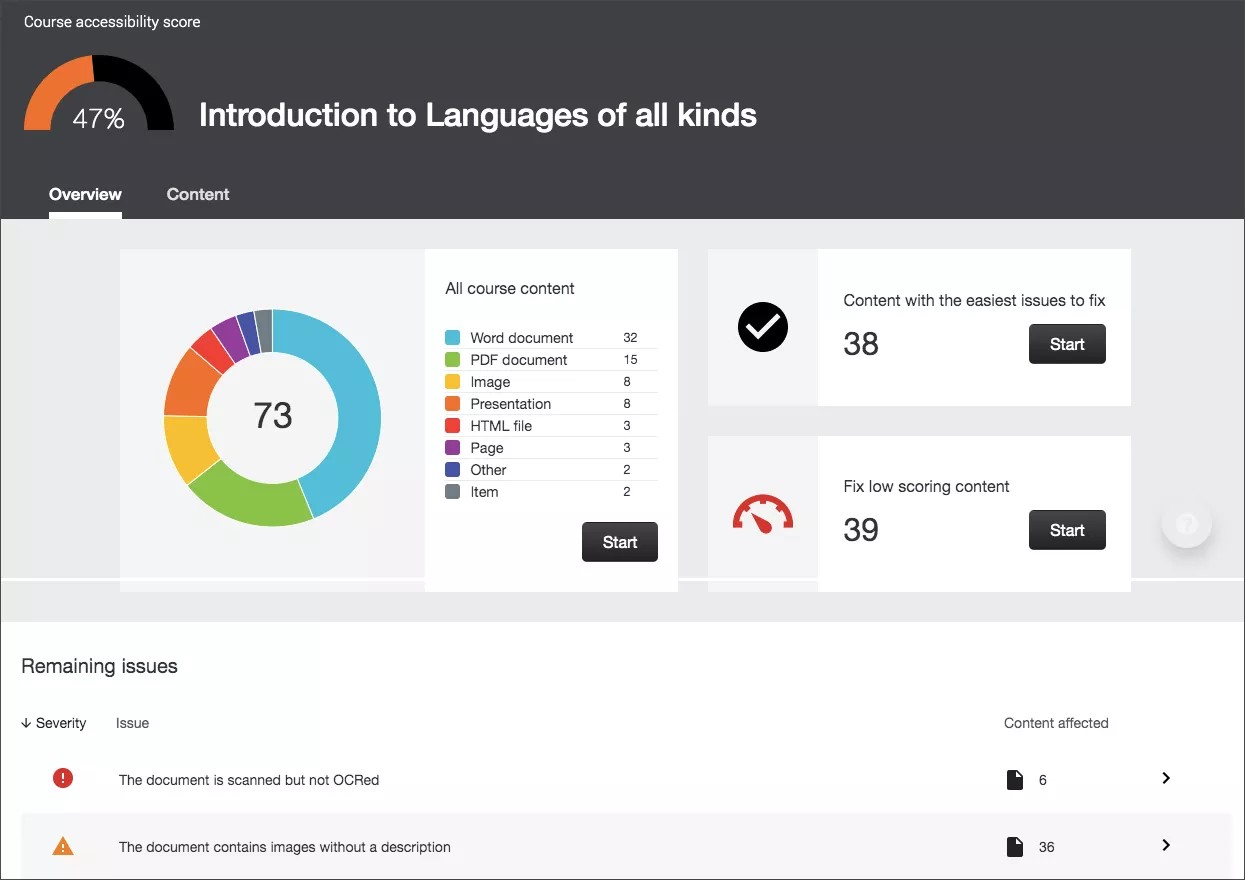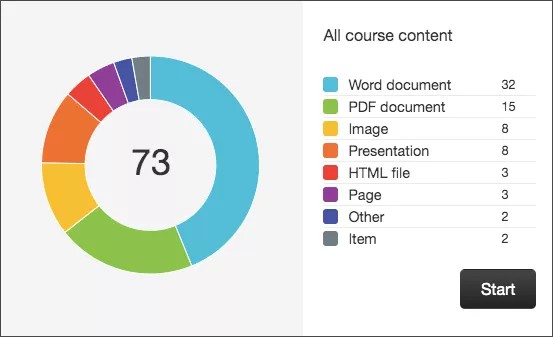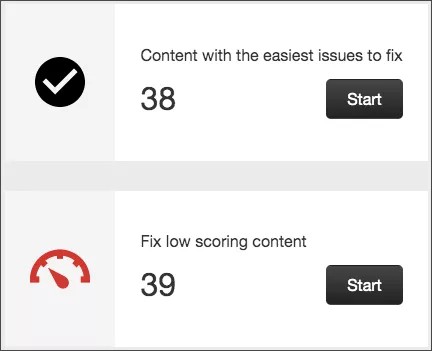Course Accessibility Report
The course accessibility report acts as a complement to the existing accessibility indicators. It provides an accessibility summary and overview at the course level.
Find your course accessibility report
Your administrator must configure the course report for it to appear in your courses. Where you find the report depends on your Learning Management System (LMS).
Blackboard Original Course View: Course Tools
Blackboard Ultra Course View: Books & Course Tools
Older versions of Blackboard: Student tools
Tip
Hide the report link so students don't see it.
Moodle: Course Dashboard
Instructure Canvas: Course left navigation bar
Schoology: Course left navigation bar
D2L Brightspace: Course Navbar
Note
Course templates in D2L Brightspace also have course reports.
Course accessibility report
Ally’s course accessibility report includes Overview and Content tabs so that you can get the big picture as well as specific details about the accessibility of your digital course content.
The Overview tab shows the accessibility score for the course, course content grouped by content type, and a list of all issues identified in the course
The Content tab shows you the content with accessibility issues.

All course content
All the content in your course is grouped by content type. Select Start to go to the Content tab and start fixing issues.

LMS content editor (WYSIWYG) content
Important
The results for WYSIWYG content only appear in the Institutional Report and Course accessibility report.
Ally also checks these content types created through the system content WYSIWYG editor for accessibility issues.
The data appears in the Institutional Report as HTML. It appears in the CSV export as application column headers.
Blackboard Original
Content Folder (application/x-folder)
Content Item (application/x-item)
Learning Module (application/x-learning-module)
Lesson Plan (application/x-lesson)
A link to a Forum (application/x-link-discussion-topic)
Web Link (application/x-link-web)
Embedded LTI application (application/x-lti-launch)
All other WYSIWYG content types including Blank page and Module page (application/x-page)
Blackboard Ultra
Document (application/x-document)
Folder (application/x-folder)
Learning Module (application/x-learning-module)
A link to a Forum (application/x-link-discussion-topic)
Web Link (application/x-link-web)
Embedded LTI application (application/x-lti-launch)
Moodle
Assignment (application/x-assignment)
Book (application/x-book)
Book chapter (application/x-book-chapter)
Discussion topics (application/x-discussion-topic)
Forum description (application/x-forum)
Glossary description (application/x-glossary)
Glossary entry (application/x-glossary-entry)
Label (application/x-label)
Lesson description (application/x-lesson-description)
Lesson page (application/x-lesson-page)
Page content (application/x-page-content)
Page introduction (application/x-page-intro)
Section (application/x-section)
Syllabus (application/x-syllabus)
Canvas
Announcement (application/x-announcement)
Assignment (application/x-assignment)
Discussion Topics (application/x-discussion-topic)
Quiz description (application/x-quiz)
Syllabus (application/x-syllabus)
Page (application/x-page)
D2L Brightspace
Discussion Topics (application/x-discussion-topic)
File (application/x-file)
Web Links (application/x-link-web)
Module (application/x-module)
Quiz description (application/x-quiz)
Schoology
Assignment (application/x-assignment)
Discussion Topics (application/x-discussion-topic)
Page (application/x-page)
Choose what to fix first
Use the report to help you decide what to fix first. For example, you could address content with most severe issues first or start with the content that's easiest to fix.
Choose between Content with the easiest issues to fix and Fix low scoring content. See how many pieces of content you'll be fixing. Select Start.

Remaining issues
Issues are listed in order of priority from severe to minor. Those listed first should be addressed first. Ally looks at the number of students impacted, how often the issue occurs, and the accessibility score to determine the priority.
Severe. These issues are the greatest risk to accessibility and require the most attention.
Major. These issues impact accessibility, and while not severe, require attention.
Minor. These issues should be considered for a better accessibility score.